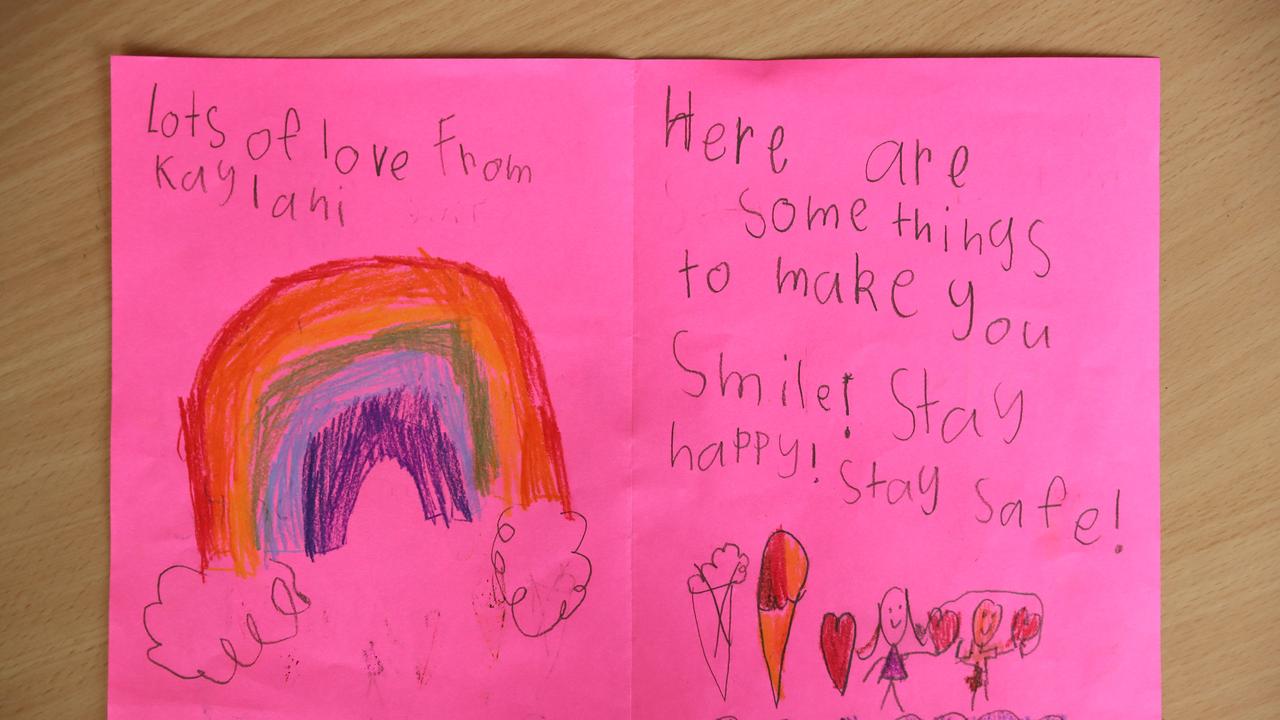Creative discipline for kids: How do we best demonstrate good behaviour?
IT’S NOT 1974 anymore, so washing mouths out with soap isn’t on the agenda. body+soul searches out the alternatives.

DID you know that 87 per cent of parents who shout, “If you don’t eat your broccoli/stop hitting your brother/get dressed/get off the computer right now, I’m going to…”, admit that they have no idea what to say after the “I’m going to…” bit?
OK, I made that up but this statistic is the real deal: 100 per cent of parents have thrown their hands up in despair at their kids’ behaviour on more than one occasion and thought, “If only there was another way of getting them to do what I want”.
Well, maybe there is.
There’s a growing trend among parenting experts towards “creative discipline” techniques – approaches that not only curb an offspring’s undesirable behaviour but do so in a way that’s fun rather than forceful and helps the lesson to stick.
We can’t guarantee all of these will work for your child but if you’re in that 100-per-cent-of-parents group mentioned above, we bet you wouldn’t say no to a few more behaviour modification ideas to have up your sleeves.
Lou Harvey-Zahra, author of Creative Discipline, Connected Family: Transforming Tears Tantrums and Troubles, offers these verbal creative disciplines to try on your mini misbehavers.
YOUR YOUNG’UN WON’T SHARE
Creative discipline: Practise sharing and turn-taking skills with teddy on a play mat.
“Teddy’s turn, Jenny’s turn, Mummy’s turn…”
Use a timer for turns. Before a play date, ask the littlie to choose special toys to put up high, and agree to share the other toys.
Why it works: Children learn through imaginative games and role-play.
STRUGGLES WITH CLEANING THEIR TEETH
Creative discipline: While brushing your child’s teeth, tell a story of what each tooth did that day, “This tooth ate toast for breakfast, this tooth played with the wooden blocks…”
Why it works: Kids like to hear about themselves and teeth cleaning becomes a connection game.
REFUSES/FORGETS TO DO A REGULAR CHORE
Creative discipline: With younger children, make chores part of a fun daily rhythm.
For example, the laundry basket is hungry for clothes each night before story/bedtime.
For older kids, make a request and then follow up with a single word, “clothes”, or simply point to it.
Why it works: Playing chores as a rhythm at a young age makes tasks more familiar for later life. Single-word requests eliminate nagging and power struggles.

FIGHTS WITH SIBLINGS
Creative discipline: Talk about “clever hands”. List all the things that clever hands can do (make a poster or book), but reinforce that clever hands don’t hurt others – ever.
Why it works: This approach redirects hands to be kind and useful, not harmful.
REPEATEDLY USES A WHINING OR DISRESPECTFUL VOICE
Creative discipline: Use humour: “Where has your strong/respectful voice gone? Is it behind the sofa, under the table?”
Role-model the correct voice and only respond to an appropriate tone.
When our teenagers raise their voices, my husband jokingly says, “I can’t hear you, speak louder!” He means, “I won’t listen until you speak appropriately.”
Why it works: Remember: Humour is fun, and children can close off to nagging and raised voices at times (just like we grown-ups can).
SUNDAY BOX
“Bron”, blogger and writer from Maxabella Loves, invented a nifty little trick called The Sunday Box for kids who won’t pick up their stuff.
Here’s how to works: Anything that the ankle-biters leave lying around after they go to bed each night ends up in a box marked “The Sunday Box” which they can’t access until that day.
This includes toys, clothes, books, drawing and notes (the lot).
It’s then their responsibility to take anything out and put it away on Sunday or it goes to charity. This system simple, straightforward and just a little bit sly – and it works.
A little less conversation, a little more action
If you read these ideas and found yourself sputtering a long, low, hollow laugh at the idea of your children responding to such pleasantries, action-based creative disciplines might be more your family’s scene.
Deb Hopper, from Life Skills 4 Kids, is an occupational therapist and author of Reducing Meltdowns and Improving Concentration.
She recommends getting insubordinate kids to do some “muscle” work (such as lifting, pushing or pulling to “help calm and self-regulate the nervous system”).
We’re not suggesting you send them to the coal mines but letting them sweat it out of their system might help. Some of Hopper’s suggestions:
1. When things fall apart with children, have a push-up race. Line up your kids on a blank wall or in the hall. Stand 20-30cm back and get them to do as many push-ups as they can off the wall (especially easier for younger children) or floor. Set a timer for a minute and say “ready, set, go!”
2. On a hot day when squabbles rise at home, fill up buckets (one for each child) and give them a thick car washing sponge. Have a race and see who can empty their bucket by using the sponge to dip in and squeeze out.
3. If your kids get the wiggles and start whining, have a relay race in the backyard. Fill up a few two-litre milk bottles and tell them they need to run and have five turns each of the relay.
FACT: Kids who are smacked frequently at age 3 are more likely to be aggressive by age 5 than others.
Source: Pediatrics journal
Originally published as Creative discipline for kids: How do we best demonstrate good behaviour?



